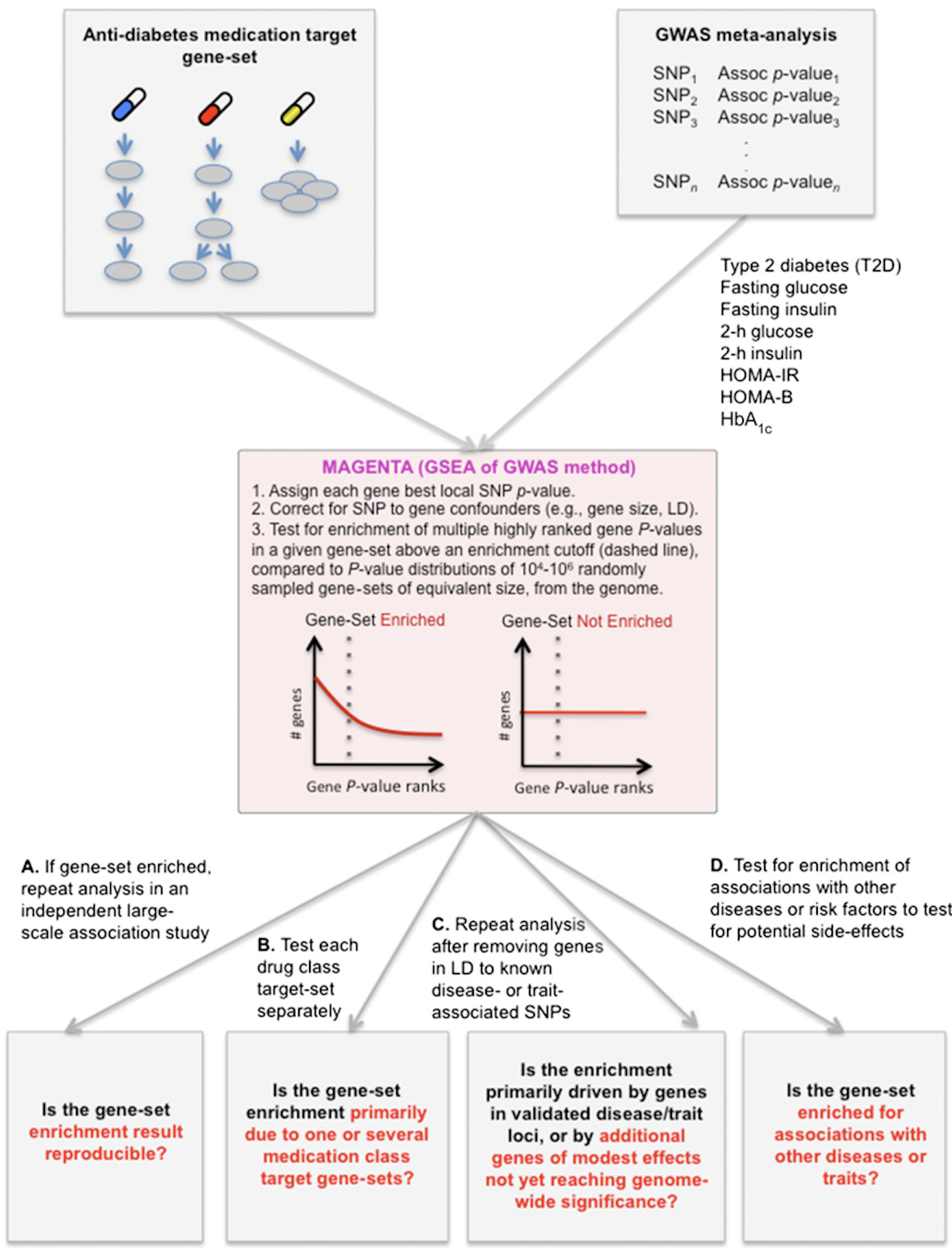Pathways targeted by anti-diabetes drugs are enriched for multiple genes associated with type 2 diabetes risk

Genome-wide association studies (GWAS) have uncovered >65 common variants associated with type 2 diabetes (T2D); however, their relevance for drug development is not yet clear. Of note, the first two T2D-associated loci (PPARG and KCNJ11/ABCC8) encode known targets of antidiabetes medications. We therefore tested whether other genes/pathways targeted by antidiabetes drugs are associated with T2D. We compiled a list of 102 genes in pathways targeted by marketed antidiabetic medications and applied Gene Set Enrichment Analysis (MAGENTA [Meta-Analysis Gene-set Enrichment of variaNT Associations]) to this gene set, using available GWAS meta-analyses for T2D and seven quantitative glycemic traits. We detected a strong enrichment of drug target genes associated with T2D (P = 2 × 10(-5); 14 potential new associations), primarily driven by insulin and thiazolidinedione (TZD) targets, which was replicated in an independent meta-analysis (Metabochip). The glycemic traits yielded no enrichment. The T2D enrichment signal was largely due to multiple genes of modest effects (P = 4 × 10(-4), after removing known loci), highlighting new associations for follow-up (ACSL1, NFKB1, SLC2A2, incretin targets). Furthermore, we found that TZD targets were enriched for LDL cholesterol associations, illustrating the utility of this approach in identifying potential side effects. These results highlight the potential biomedical relevance of genes revealed by GWAS and may provide new avenues for tailored therapy and T2D treatment design.
Segre_T2D_drug_target_Diabetes_2015.pdf



